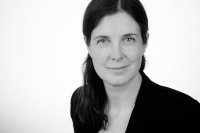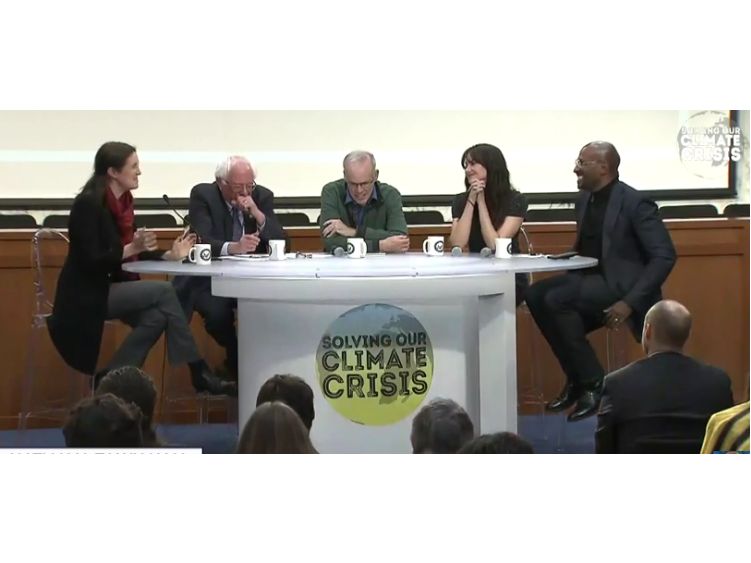Climate Change on the Agenda at the European Think Tank Summit in Madrid
- Presentation
- Date
-
-
- Location
- Madrid, Spain
- Panel discussion
The 2019 European Think Tank Summit in Madrid brought together think tank leaders from all over Europe – and some guests from Asia and America – to discuss pressing political issues, including the changing face of Europe, artificial intelligence, migration, NATO and the role of think tanks. Ecologic Institute's Director, Dr. Camilla Bausch, elaborated on new policy approaches and public engagement strategies in the field of national and international climate protection.
Dr. Bausch spoke on the panel "Trends and Transitions in Climate Change", which also featured Lara Lázaro (Elcano Royal Institute, Spain), Álvaro Rodríguez (Fundación Alternativas, Spain) and Sébastien Treyer (IDDRI), France) and was chaired by Robert Watt (Stockholm Environment Institute, Sweden).
Despite the generally acknowledged need for urgent action on climate change as well as rising pressure from a broader public – as exemplified e.g. by Greta Thunberg and the Fridays for Future movement – there is still no international consensus which would ensure the achievement of an international goal to keep global warming below 2 degrees Celsius. In this context, national contributions to climate protection need to increase, policies need to be bold, and will only be successful if socially accepted.
Looking back at the history of international climate negotiations, Dr. Bausch reminded the audience of the difficulties of nation states to commit to a Kyoto-style regime with binding international targets and a strict compliance regime in 2009. Following this failure at the Climate Summit in Copenhagen, the negotiation approach successfully leading to the 2015 Paris Climate Agreement included as a key element a strong call and platform for private action by business, civil society and the broader public. This broad engagement was to bolster up the policy makers in their endeavor to come to an ambitious international agreement. Furthermore, with the Paris regime strongly building on voluntary national pledges, public engagement – including the work of think tanks – plays a crucial role to help monitor and reach the national targets, raising ambition and finding good solutions to successfully implement socially acceptable climate policies at the national level. As an example, Dr. Bausch explained the approach taken by Germany to prepare for a coal phase out: the 2018-19 commission for the coal phase-out consisted of very diverse societal actors – be it unions, business associations, non-governmental organisations or scientists – to agree collectively on a potential pathway to phase out coal. This design was chosen to build a strong basis for policy makers to then implement a socially acceptable solution. Against many odds, the commission was able to present an agreed outcome. Now it is the responsibility of the German government to act and implement the solutions suggested.
The European Think Tank Summit is an annual event organized by the University of Pennsylvania's Think Tanks and Civil Societies Program (TTCSP) . The 2019 Summit in Madrid was hosted by Elcano Royal Institute and the Fundación Alternativas in collaboration with the Barcelona Centre for International Affairs (CIDOB). Ecologic Institute has been active in the think tank summits since the beginning of the event series.






